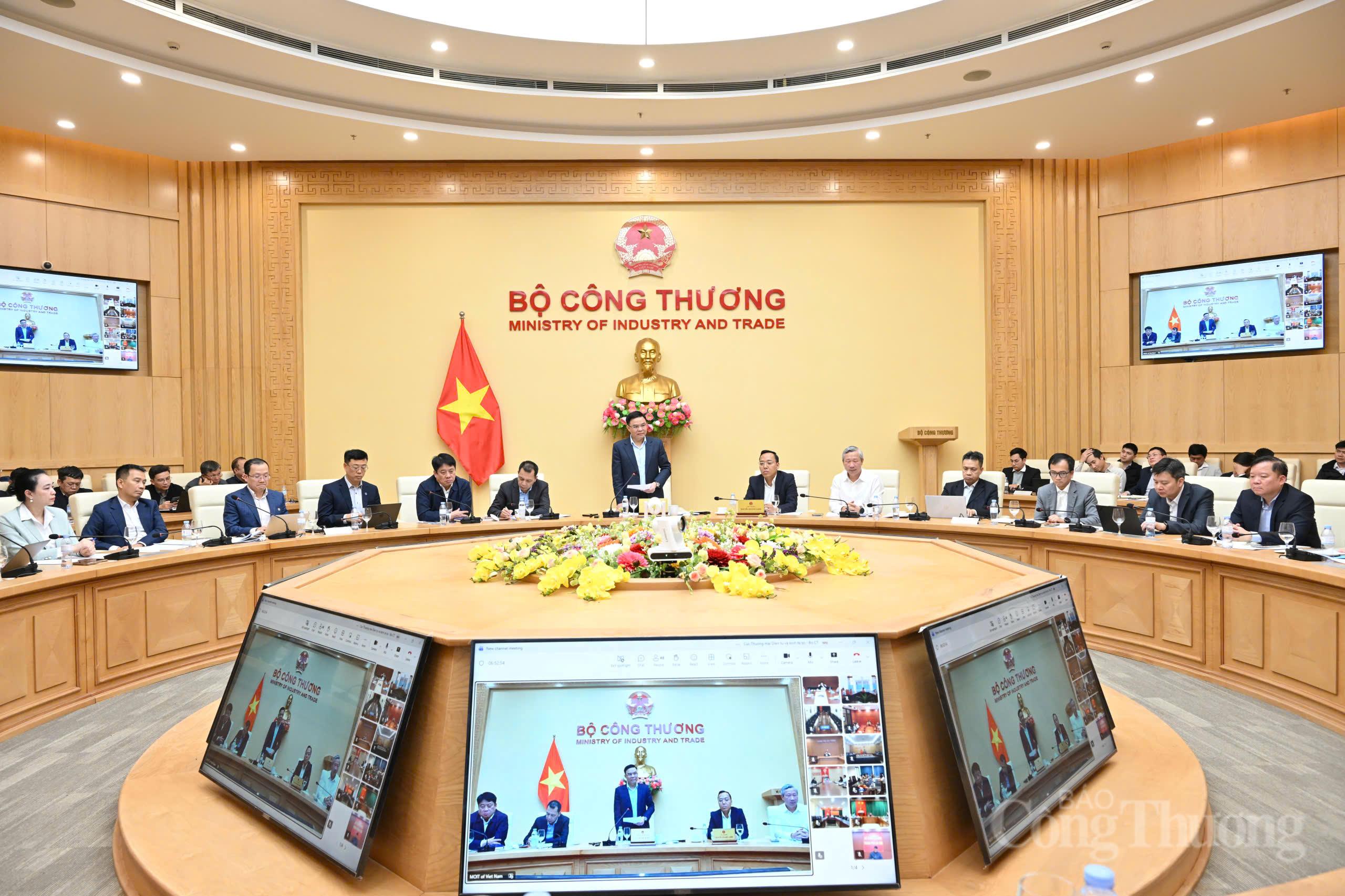
The MoIT strengthens the power supply and key energy projects
19:05 | 23/03/2025 14:42 | 31/01/2026News and Events
Building a unified, secure, and efficient data ecosystem
On November 5, Minister Nguyen Hong Dien signed Decision No.3255/QD-BCT to approve the Data Development Strategy and the Master Plan for data center infrastructure under the MoIT. This marks a significant step forward, reflecting the MoIT determination to transition to a digital governance model, with data serving as the foundation for all management, operational, and policy-making activities.
In recent years, the MoIT has proactively developed and operated about 40 databases, including open data, sectoral databases, and data centers serving management and administration. However, these data systems remain fragmented, poorly connected, and underutilized. Data sharing and integration among units are inconsistent and lack synchronization, limiting the ministry’s capacity for data analysis and reducing efficiency in serving citizens and enterprises.
In the context of digital transformation becoming a key driver across all sectors, the MoIT recognizes that the introduction of a comprehensive Data Development Strategy is an urgent requirement. The strategy aims to establish a unified, secure, and efficient data ecosystem capable of connecting with national databases contributing to the development of Vietnam’s digital government, digital economy, and digital society.

The MoIT launches its Data Development Strategy through 2030, aiming to build a unified, secure, and fully data-driven ecosystem.
The strategy sets the goal of maintaining the MoIT’s pioneering role in national digital transformation while completing the legal framework for data collection, management, sharing, and exploitation. It envisions the creation of a data ecosystem that is “accurate, sufficient, clean, live, unified, and shared”, serving as a solid foundation for evidence-based policymaking.
At the same time, the MoIT will develop an integrated and interconnected data infrastructure to support management, policy development, market forecasting, and coordination across departments. All ministry operations from strategic planning to daily administrative activities will be carried out in a digital environment, moving toward the model of a “data-driven ministry.”
The strategy also emphasizes a people- and business-centered approach, encouraging active participation across the entire system in data collection, development, sharing, and enrichment. This transformation will not only enhance the ministry’s operational efficiency but also increase transparency, strengthen public trust, and promote administrative reform and sustainable development.
Towards a data-driven ministry
According to the strategy, the MoIT will develop its data ecosystem based on three main pillars: data for industrial and energy management; data for trade and market management; and aggregated economic data for the industry and trade sector. Each data category will serve distinct functions in management, regulation, and policy formulation.
Industrial and energy management data will enhance oversight of production, planning, and sustainable energy use. Trade and market management data will provide insights into commodity circulation, trade flows, e-commerce, and competition. Meanwhile, aggregated economic data will serve as the foundation for forecasting trends, assessing impacts, and designing effective policies for sectoral development.
By 2028, all databases under the MoIT that require interconnection or information sharing will be fully integrated through the Local Government Service Platform (LGSP) or other digital platforms in accordance with regulations. All decision-making, policy formulation, and administrative operations of the MoIT will be conducted in a digital environment based on data, ensuring transparency, openness, and efficiency.
On the infrastructure side, the MoIT will develop a centralized data center system based on the principle of “centralized infrastructure, interconnected data efficient exploitation,” ensuring cybersecurity, data safety, and scalability for integration with national databases. The target for 2030 is to establish a unified, secure, and reliable data system that serves as the core foundation for comprehensive digital transformation across the ministry.
The strategy identifies data not merely as a management tool but as a strategic resource for the digital economy. The MoIT will establish transparent data governance mechanisms defining ownership, access, and utilization rights, while issuing policies to encourage innovation and data sharing. Protecting national data sovereignty, particularly amid increasing global data exchange, will also be a central priority.
To achieve these goals, the MoIT will increase investment in modern technological infrastructure, including centralized data centers, data lakes, data warehouses, cloud computing systems, and smart data analytics platforms. Developing a highly qualified data workforce, including data scientists, engineers, and analysts, is also considered vital for mastering advanced technologies in data mining, processing, and analytics.
The implementation roadmap is divided into three phases. During 2025 - 2026, the MoIT will establish data catalogs, complete legal and technical standards, and build a shared operational data repository. The 2027 - 2028 phase will focus on applying artificial intelligence to data mining, analytics, and governance, forming an integrated data platform. By 2029 - 2030, the MoIT will achieve full technological mastery and develop applications to support state management and policy formulation.
Funding will be drawn from the state budget and other lawful sources, while encouraging contributions from domestic and international enterprises and technology organizations. The Agency for E-Commerce and Digital Economy will serve as the focal unit responsible for coordination, guidance, supervision, and ensuring data security during implementation.
The Data Development Strategy and Master Plan for data center infrastructure represent more than just a technical blueprint, they embody the MoIT’s long-term vision and strategic direction in the digital era. As data becomes the core foundation of all activities, the ministry will shift from traditional management to modern, flexible, and transparent digital governance.
Every decision and policy based on reliable data will help the ministry improve efficiency, reduce errors, and enhance public confidence. Moreover, the development of modern data infrastructure opens opportunities to better utilize economic, industrial, energy, and market data, critical resources for policy formulation and sustainable growth.
The MoIT recognizes that developing data systems and data center infrastructure not only serves internal needs but also facilitates interconnectivity with other ministries and agencies, contributing to a unified national data network. This foundation is essential to building a digital government and digital economy where every decision is guided by reliable data and conducted transparently.
Through its Data Development Strategy through 2030, the MoIT affirms its long-term vision and strong commitment to comprehensive digital transformation, aiming to establish a modern, efficient, and transparent governance model that advances Vietnam’s digital economy, digital society, and digital government.

19:05 | 23/03/2025 14:42 | 31/01/2026News and Events

19:05 | 23/03/2025 22:14 | 30/01/2026News and Events

19:05 | 23/03/2025 16:24 | 30/01/2026Science - Technology

19:05 | 23/03/2025 09:54 | 30/01/2026Cooperation

19:05 | 23/03/2025 09:40 | 30/01/2026Investment